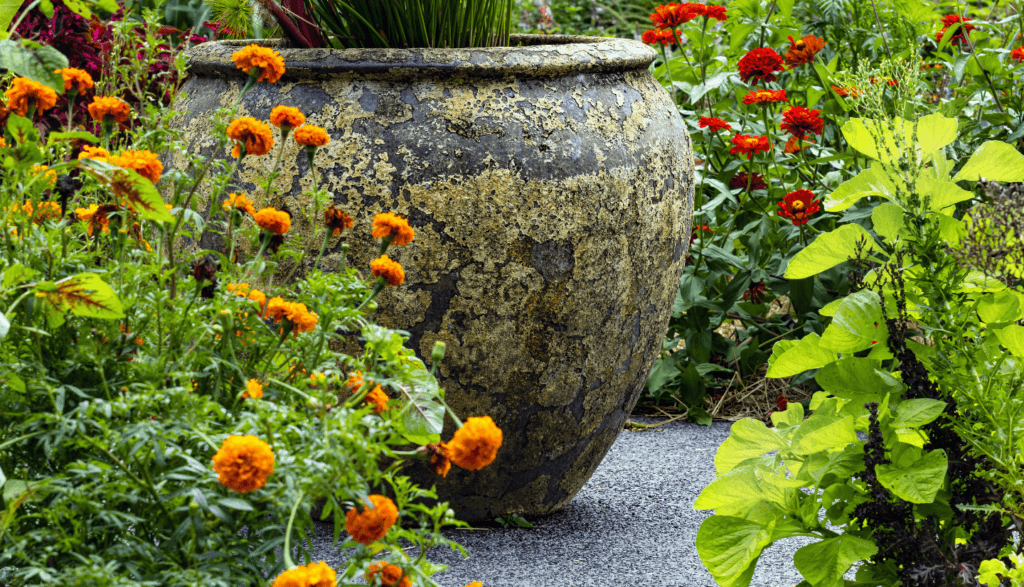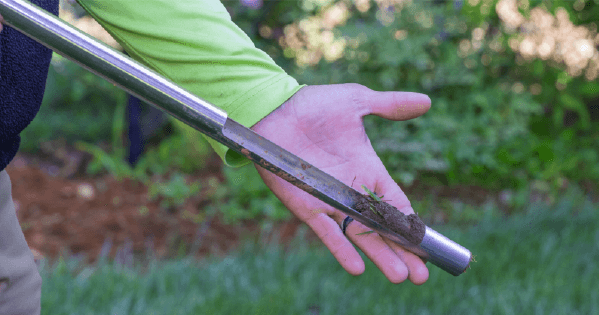What Plants Repel Mosquitoes

Chemical methods are popular when trying to control the mosquito population during Georgia’s more humid seasons of late spring and summer. More homeowners, however, are seeking natural options for mosquito control to protect their loved ones and also beneficial insects such as honey bees.
Mosquitoes rely on their sense of smell to locate hosts for blood meals, and certain scents can disrupt their ability to find their targets. Natural ways to repel mosquitoes include growing plants around your home or garden that emit scents these particular pests don’t like. Listed below are some ideas of plants to include on your patio space where you’ll be spending most of your warm summer nights.
Plants known for their ability to repel mosquitoes:
- Lavender – Lavender contains natural compounds, such as linalool and linalyl acetate, which contribute to its distinctive scent. While humans may find this scent pleasant and soothing, mosquitoes are repelled and confused by it. Additionally, lavender also has antimicrobial properties, which may play a role in deterring mosquitoes.
- Citronella – It is believed that mosquitoes find the odor of citronella confusing or irritating, which deters them from landing and biting. Essentially, it disrupts their ability to detect carbon dioxide and other chemicals emitted by humans, making it harder for them to find a host for a blood meal. Citronella contains several volatile compounds responsible for the characteristic lemony scent of citronella.
- Marigolds – Marigolds are pretty to look at with their vibrant colors, but their scent repels mosquitoes. These flowers contain natural volatile compounds, particularly pyrethrum, that contribute to their insect-repelling properties. These compounds interfere with the insects’ ability to locate hosts for blood meals by masking odors that attract them. As a result, mosquitoes are less likely to land on or bite individuals in areas where marigolds are present.
- Lemon Balm – Lemon balm emits a strong lemony fragrance due to its high content of essential oils, including citronellal, citral, and geraniol. These compounds are known for their insect-repellent properties. Therefore, it interferes with their ability to detect the chemical cues that lead them to their hosts. The strong lemon scent can overwhelm or confuse mosquitoes, making it difficult for them to locate and feed on humans.
- Catnip – This plant contains a compound called nepetalactone, which studies have shown is about 10 times more effective at repelling mosquitoes than DEET, the most common synthetic insect repellent. Interestingly, catnip doesn’t repel all insects; it specifically targets mosquitoes while attracting cats due to its effect on felines. However, humans may also find the minty scent pleasant. Catnip can be grown in gardens or pots around outdoor living spaces to help deter mosquitoes naturally.
- Basil – Mosquitoes are repelled by the scent of basil, likely due to the presence of volatile compounds included in other plants mentioned above. Basil emits a strong fragrance that can interfere with mosquitoes’ ability to detect human scents. While basil may not be as potent as some other natural repellents like citronella or catnip, it can still provide some level of protection against mosquitoes when planted in gardens or pots around outdoor living areas. Basil needs to be clipped often so it will continue to grow, which makes its leaves useful in cooking.
- Rosemary – This popular cooking herb contains several compounds, including camphor, 1,8-cineole, and alpha-pinene, which contribute to its distinctive aroma and potential mosquito-repelling properties. Rosemary gives off a strong fragrance and when combined with plants mentioned above, can contribute to repelling mosquitoes.
- Mint – Mint, including varieties like peppermint and spearmint, contains aromatic compounds such as menthol, limonene, and pulegone. Mosquitoes are repelled by the scent of mint, likely due to the presence of these volatile compounds. The strong fragrance emitted by mint, especially the menthol, discourages mosquitoes from landing and biting.
- Geraniums – The Pelargonium citrosum variety of the geranium is also known as the “mosquito plant” or “citronella geranium” because it contains aromatic compounds believed to repel these late spring and summer pests. The primary compound responsible for the mosquito-repelling properties of geraniums is citronellal, which is also found in herbaceous plants. It emits a lemon-like scent mosquitoes find unpleasant or confusing. While some studies question citronella geraniums as a standalone mosquito repellent, many find them helpful when planted in gardens or pots around outdoor living areas. Besides, they are pretty to look at and add to the aesthetics of the garden.
- Chrysanthemums – Chrysanthemums contain natural insecticidal compounds called pyrethrins, which are effective at repelling and killing mosquitoes, as well as other insects. They disrupt the nervous system of insects upon contact, leading to paralysis and eventual death. This makes chrysanthemums not only effective at repelling mosquitoes but also at controlling other insect pests.
Simply Green Can Help!
Looking to incorporate more natural ways to repel mosquitoes? Contact your professional lawn and garden care experts for a consultation. A technician will assess your property and determine the best treatment plan for controlling irritating insects.
About Simply Green Lawn Care

Simply Green aims to provide the highest quality lawn care, mosquito control, and lawn pest control services to Georgia residents.
We are locally owned and operated which allows us to be accessible, attentive, and responsive for customers in Georgia.
Our well-trained team is easy to work with and determined to exceed expectations.
All our plant health care specialists are Georgia Department of Agriculture Certified and maintain their Category 24 applicators license.


